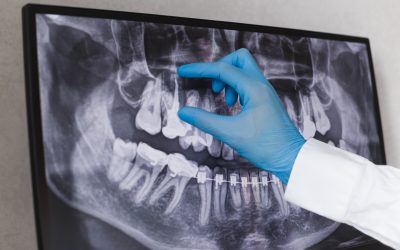Navigating the world of dental care can sometimes raise questions about the relationship between patients and their dentists. One such question you might have is can a dentist choose not to treat a patient? The answer is yes, but certain ethical and legal considerations must be taken into account.
As a patient, you have certain rights detailed in the Dental Patient's Bill of Rights, such as the right to know the education and training of your dentist, the purpose and risks of procedures, and the cost of your treatment. At the same time, dentists must operate within the confines of ethical guidelines and practice management standards, such as behaving professionally when considering dismissing a patient and providing appropriate notice for them to find a new provider as suggested by the ADA.
Understanding these rights and guidelines ensures that you're well-informed about your dental care and the potential reasons a dentist may choose not to treat you. This knowledge can help you build a strong relationship with your dental care provider, ultimately benefitting your oral health in the long run.
Reasons for Denying Treatment
According to the American Dental Association, dentists shall not refuse service to patients based on gender, race, color, disability, creed, sexual orientation, gender identity, or national origin.
Patient Non-Compliance
In some cases, your dentist might deny treatment if a patient refuses to follow their recommendations or agrees to some steps but not others. For example, if you refuse to undergo necessary X-rays or fill out your required medical history forms, your dentist may decline to provide additional care. Non-compliance can create additional risks for you and the dental practitioner, so it is essential to follow their guidelines for a successful outcome.

Inability to Pay
While dentists understand that the cost of dental care can be a concern, inability to pay or make suitable payment arrangements may lead to your dentist denying treatment. Many dental practices offer payment plans or work with dental insurance providers and can guide you to make the best choices for your financial situation. Remember that it is your responsibility to communicate your ability to pay and negotiate suitable arrangements.
Scope of Practice
Another reason a dentist might choose not to treat a patient could be due to the scope of their practice. If you are seeking treatments that exceed your dentist's area of expertise, they may decline to provide them. In that case, your dentist should refer you to a specialist more equipped to address your specific needs. This referral ensures you receive the highest quality of care, as dentists should be practicing within their professional limitations.
Infection Control Risks
Dentists are responsible for maintaining a safe and hygienic environment for all their patients. If treating a patient poses a significant infection control risk, your dentist might opt not to do so. However, modern dental practices are equipped with infection control measures, and dentists should treat patients regardless of past or present infectious diseases.
By understanding these reasons, you can ensure a smoother experience with your dentist and work together to maintain your oral health. Remember that communication and mutual understanding are crucial in building trust and long-term dentist-patient relationships.
Legal and Ethical Considerations
Dentists must adhere to a professional code of ethics and state laws to ensure the best possible patient care and maintain a successful practice.
Abandonment and Dismissal
As a dentist, you may sometimes face situations where you need to decide whether to treat a non-compliant patient or dismiss them from your practice. Dentists have autonomy and do not have to treat every patient seeking care. However, while you have a general duty to complete the care you start, you can withdraw, terminate care, or dismiss patients if justified. Be aware of your ethical responsibilities and patient relations when making such decisions.
Informed Consent and Refusal
Informed consent is crucial in maintaining a healthy doctor-patient relationship. Patients must be fully informed about their treatment options to make appropriate decisions about their oral health. However, if a patient refuses certain treatments, the American Dental Association (ADA) states that a dentist may decide whether to proceed with the patient's preference or not. Dentists must consider the patient's needs, interests, and applicable laws while handling informed consent and refusal situations.
Doctor-Patient Relationship
Building trust and understanding within the doctor-patient relationship is essential to treat your patients successfully. According to the ADA's Code of Ethics, dentists need to prioritize their patient's needs and interests in an ethical manner. This involves taking into consideration their goals, privacy (e.g., HIPAA), and refusal of treatment when making any decisions.
State Laws
State laws play a significant role in how you handle various situations involving treatment refusal, informed consent, and abandonment. Familiarizing yourself with your state's regulations surrounding these issues is essential, as legal requirements may vary. Complying with state laws helps protect you from potential legal issues while upholding your ethical responsibility to your patients.

Emergency Situations
In emergencies, your dentist is ethically obligated to provide necessary treatment or refer you to an appropriate healthcare provider. However, there may be times when a dentist can choose not to treat a patient, even in emergency situations.
For example, if you have a dental emergency outside of normal business hours, it's important to call your dentist first. If they are unavailable, they may provide you with alternative options, such as seeking treatment at a hospital or another dentist.
Dentists usually require consent from a parent or guardian when treating a minor in emergency situations. However, suppose the emergency arises when legal consent cannot be obtained, and delaying treatment could endanger the child's health. In that case, many state laws permit dentists to proceed without parental consent.
When managing emergencies, dentists must be prepared. A dentist should be able to confidently recognize and manage a variety of medical emergencies that may occur in the dental office. The American Dental Association provides resources to help dentists and their staff handle such situations.
During emergency treatment, ensure that you communicate any medical conditions, medications, or allergies, as these can significantly impact the course of treatment. This information helps your dentist make informed decisions about the best approach to addressing your dental emergency.
Remember, maintaining good communication with your dentist is essential in ensuring they understand your needs and can provide the best possible care in emergency situations.
American Dental Association Guidelines
Dentists can uphold the American Dental Association's ethical standards by adhering to the ADA guidelines while providing quality dental care to their patients.
Patient Education
According to the American Dental Association, it is essential for dentists to provide their patients with education on their oral health, potential treatments, and suggested preventive measures. As a dentist, you should explain clearly how dental procedures, potential complications, and radiographs work to help your patients make informed decisions about their oral care. Make sure to discuss treatment plans, costs, and schedules in a transparent and comprehensible manner.
Continuing Education
The American Dental Association emphasizes the importance of continuing education for dentists. Staying up-to-date with the recent advancements in dental science and research, participating in certified courses, and reviewing clinical practice guidelines can help you better serve your patients and maintain a high standard of care. As you deepen your knowledge, you will be well-equipped to handle various dental procedures, provide evidence-based treatment, and make sound clinical decisions.
Dismissing a Patient
There may be situations where dismissing a patient from your practice becomes essential. However, the ADA states that dentists should not refuse to accept patients or deny dental service based on a patient's race, sexual orientation, gender identity, or disability. Before you decide to dismiss a patient, consider the following steps:
-
- Provide appropriate consultation and explore alternative options.
- Discuss the reasons for dismissal, ensuring they are valid and non-discriminatory.
- Offer assistance in finding a suitable dental practitioner for the patient.
- Draft a clear and respectful patient dismissal letter explaining the reasons for termination and outlining any necessary follow-up actions.
Remember that dismissing a patient should always be your last resort, and it's crucial to communicate openly, honestly, and professionally with your patients throughout the process.

Managing Patient Records and Communication
By managing patient records and communications effectively, dentists can maintain a professional relationship with their patients while adhering to legal and ethical standards in dentistry.
HIPAA Compliance
As a dentist, it's essential to ensure HIPAA compliance to protect patient information. Maintaining accurate and secure patient records is of utmost importance. Here are some recommendations:
-
- Keep personal information such as name, birth date, and contact details up-to-date
- Regularly update medical and dental histories
- Document progress and treatment notes meticulously
Remember, you're required to manage your patients' records according to state and federal laws. These regulations dictate how to handle the records, how long to keep them, and who can access the information.
Dismissal Letters
There might be instances in which dismissing a patient from your practice is necessary. Reasons for dismissal may include informed refusal, patient non-compliance, or other unresolved issues. In such cases, you must provide a patient dismissal letter. Here are some tips for writing a professional dismissal letter:
-
- Clearly state the reasons for the dismissal
- Mention any specific incidents that led to the decision
- Specify the effective date of dismissal
- Provide contact information for other dental practices the patient can consider
- Ensure to meet all legal requirements for dismissal letters in your jurisdiction
Take the time to review each of these aspects before finalizing your dismissal letter. Additionally, ensure the patient's record reflects the reasons and actions taken for their dismissal.
Can a Dentist Choose Not to Treat a Patient – Final Thoughts
As a dental professional, you may encounter situations where you might consider not treating a patient, but can a dentist choose not to treat a patient? In short, yes. However, there could be various reasons for this denial of service, such as a patient's refusal to provide informed consent or a case beyond your expertise. Nevertheless, it is important to ensure that any decision not to treat a patient is both ethically and legally justified.
In certain cases, dental treatment can be contraindicated by some health conditions. You, as a dentist, may decide not to proceed with treatment if the patient presents with underlying medical conditions that significantly increase the risks associated with dental procedures. In such instances, it is essential to communicate clearly with your patient about their treatment options and the possible consequences of their health situation.
Per the Dental Patient's Bill of Rights, patients are entitled to make informed decisions about the treatments they wish to undergo. If a patient chooses to refuse treatment or does not provide informed consent, you have the right to decline their care. However, you must document the discussion and the reasons for refusing to protect yourself legally.
To terminate a dentist-patient relationship, you should ensure both parties agree to end it. Provide your patient with resources or referrals to other dental professionals if you believe another practitioner might better address their needs.
When making the decision not to treat a patient, your key concern should be the patient's best interests and overall health. Ensure that any refusal to treat is genuine and not influenced by personal biases or prejudice. Uphold the ethical standards of the dental profession when navigating through these complex situations.




